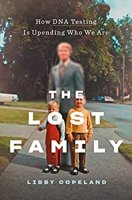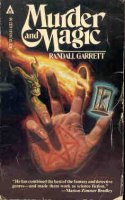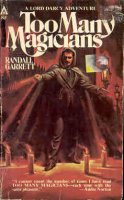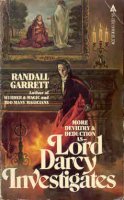C. S. Lewis wrote the Preface to a book by B. G. Sandhurst entitled How Heathen is Britain? This essay has been republished as the thirteenth chapter of Lewis's book, God in the Dock, which I recently finished re-reading. I deemed the excerpts below too extensive for my review of that book, so here they are in their own post.
The essay, written in the mid-1940's, deals largely with the effect of state education on students' beliefs and attitudes about the Christian faith. A few quotes can't do justice to the logic of the argument, but should suffice to give the flavor. All bold emphasis is my own.
The content of, and the case for, Christianity, are not put before most schoolboys under the present system; ... when they are so put a majority find them acceptable. ... [These two facts] blow away a whole fog of "reasons for the decline of religion" which are often advanced and often believed. If we had noticed that the young men of the present day found it harder and harder to get the right answers to sums, we should consider that this had been adequately explained the moment we discovered that schools had for some years ceased to teach arithmetic. (p. 115)
The sources of unbelief among young people today do not lie in those young people. The outlook which they have—until they are taught better—is a backwash from an earlier period. It is nothing intrinsic to themselves which holds them back from the Faith. This very obvious fact—that each generation is taught by an earlier generation—must be kept very firmly in mind. (p. 116)
No generation can bequeath to its successor what it has not got. You may frame the syllabus as you please. But when you have planned and reported ad nauseam, if we are skeptical we shall teach only skepticism to our pupils, if fools only folly, if vulgar only vulgarity, if saints sanctity, if heroes heroism. ... Nothing which was not in the teachers can flow from them into the pupils. (p. 116)
A society which is predominantly Christian will propagate Christianity through its schools: one which is not, will not. All the ministries of education in the world cannot alter this law. We have, in the long run, little either to hope or fear from government.
The State may take education more and more firmly under its wing. I do not doubt that by so doing it can foster conformity, perhaps even servility, up to a point; the power of the State to deliberalize a profession is undoubtedly very great. But all the teaching must still be done by concrete human individuals. The State has to use the men who exist. Nay, as long as we remain a democracy, it is men who give the State its powers. And over these men, until all freedom is extinguished, the free winds of opinion blow. Their minds are formed by influences which government cannot control. And as they come to be, so will they teach. ... Let the abstract scheme of education be what it will: its actual operation will be what the men make it. ... Your "reform" may incommode and overwork them, but it will not radically alter the total effect of their teaching. (pp. 116-117)
Where the tide flows towards increasing State control, Christianity, with its claims in one way personal and in the other way ecumenical and both ways antithetical to omnicompetent government, must always in fact (though not for a long time yet in words) be treated as an enemy. Like learning, like the family, like any ancient and liberal profession, like the common law, it gives the individual a standing ground against the State. Hence Rousseau, the father of the totalitarians, said wisely enough, from his own point of view, of Christianity, Je ne connais rien de plus contraire à l'esprit social ("I know nothing more opposed to the social spirit"). ... Even if we were permitted to force a Christian curriculum on the existing schools with the existing teachers we should only be making masters hypocrites and hardening thereby the pupils' hearts. (p. 118)
I am speaking, of course, of large schools on which a secular character is already stamped. If any man, in some little corner out of the reach of the omnicompetent, can make, or preserve a really Christian school, that is another matter. His duty is plain. (p. 119)
What a society has, that, be sure, and nothing else, it will hand on to its young. The work is urgent, for men perish around us. But there is no need to be uneasy about the ultimate event. As long as Christians have children and non-Christians do not, one need have no anxiety for the next century. (p. 119)
Clearly Lewis did not anticipate that Christians would embrace the radical move to very small families nearly as much as secular society did. I'm thankful for those who are now reversing that trend. The idea is mocked today ("evangelism by procreation"), but Lewis—though he had a difficult home life and no biological children of his own—clearly recognized the life- and faith-affirming value of begetting and bearing children in Christian families.
As for the rest of the quotations: it is still true that democratic governments have much less control over what children think and learn than they would like. But the same is now also true of teachers. Lewis was thinking of the influence of teachers when he wrote,
Planning has no magic whereby it can elicit figs from thistles or choke-pears from vines. The rich, sappy, fruit-laden tree will bear sweetness and strength and spiritual health; the dry, prickly, withered tree will teach hate, jealousy, suspicion, and inferiority ... [no matter what] you tell it to teach. (pp. 117-118)
This is even more true, now, of the movies, music, and other media that are the very air our young people breathe (and rarely think about), and of the peer-oriented society we have bequeathed them. As I wrote in my review of Gordon Neufeld and Gabor Maté's book Hold On to Your Kids (a book I strongly recommend to all parents, grandparents, teachers, pastors, and anyone else who cares about children),
It is essential to the survival of a civilization that its culture be passed on from one generation to another. Today's children are not receiving culture, they are inventing it as they go along. We are into the third generation of this problem, and appear to be reaching a tipping point. If the idea of peer culture being more important to children than their family culture doesn't seem strange and wrong to us, it's because that's how we grew up, too.
In January of 2015 I began a walking tour. Not a literal tour, though the walking was real enough. I've been keeping track of the steps I take each day, and used that information to take a virtual walk from home here in Central Florida to our family in New Hampshire. That took most of a year to accomplish: I "arrived" on December 16. 2015.
From there I took on a bigger challenge: letting my steps take me on to our family in Switzerland. I picked up the pace and reached that goal in a mere year and a half, on June 30, 2017.
Finally, I turned around and made the long journey home. That was a tough one, but nearly three years later, on May 31, 2020, my weary feet crossed the threshold. Home at last! (And now I find I must remain here for an indeterminate time!)
I began keeping track of my walking in mid-July 2014. Since then I have walked over 10,000 miles, a figure I find totally astonishing, even if most of them were accomplished walking around and around our backyard pool.
I've never liked William Golding's book, The Lord of the Flies. Why high school English teachers think it helpful to assault students' spirits with the distressing imaginations of disturbed minds, I cannot imagine. My daughter hated it even more than I did, and although she finished reading the book weeks before the school exam, she steadfastly refused to reread or study it in any way. She'd rather fail, she insisted. (Actually, she aced the test. Having a good memory is both a curse and a blessing.)
The Lord of the Flies certainly hit a chord with popular society, and like it or not has become part of our culture. Say to someone, "it's a Lord of the Flies situation there," and he knows exactly what you mean. It has also contributed to a good deal of negative and cynical thinking.
My sister-in-law, who knows my feelings on the matter, sent me this marvellous story about a real-life event that illustrates just the opposite about human behavior. (Warning: if you read the article, you may have to ignore some incidental, intense political ranting; I don't know what extras might be showing when you get there, but the last time I saw it I almost decided not to include the link. But credit must go where credit it due.) Here are some excerpts with the bare bones of the story:
This story [of the degradation and brutal behavior of castaway English schoolboys] never happened. An English schoolmaster, William Golding, made up this story in 1951—his novel Lord of the Flies would sell tens of millions of copies, be translated into more than 30 languages and hailed as one of the classics of the 20th century. In hindsight, the secret to the book’s success is clear. Golding had a masterful ability to portray the darkest depths of mankind. Of course, he had the zeitgeist of the 1960s on his side. (emphasis mine)
Years later when I began delving into the author’s life. I learned what an unhappy individual he had been: an alcoholic, prone to depression. “I have always understood the Nazis,” Golding confessed, “because I am of that sort by nature.” And it was “partly out of that sad self-knowledge” that he wrote Lord of the Flies.
I began to wonder: had anyone ever studied what real children would do if they found themselves alone on a deserted island? I wrote an article on the subject, in which I compared Lord of the Flies to modern scientific insights and concluded that, in all probability, kids would act very differently. Readers responded sceptically. All my examples concerned kids at home, at school, or at summer camp. Thus began my quest for a real-life Lord of the Flies. After trawling the web for a while, I came across an obscure blog that told an arresting story: “One day, in 1977, six boys set out from Tonga on a fishing trip ... Caught in a huge storm, the boys were shipwrecked on a deserted island. What do they do, this little tribe? They made a pact never to quarrel.”
It took some work to uncover the source of the story, as the date given was incorrect; the real year was 1966.
The real Lord of the Flies ... began in June 1965. The protagonists were six boys—Sione, Stephen, Kolo, David, Luke and Mano—all pupils at a strict Catholic boarding school in Nuku‘alofa [the capital of Tonga]. The oldest was 16, the youngest 13, and they had one main thing in common: they were bored witless. So they came up with a plan to escape: to Fiji, some 500 miles away, or even all the way to New Zealand.
The boys "borrowed" a small sailing boat, and their voyage started out fine, with fair skies and a mild breeze.
But that night the boys made a grave error. They fell asleep. A few hours later they awoke to water crashing down over their heads. It was dark. They hoisted the sail, which the wind promptly tore to shreds. Next to break was the rudder. “We drifted for eight days,” Mano told me. “Without food. Without water.” The boys tried catching fish. They managed to collect some rainwater in hollowed-out coconut shells and shared it equally between them, each taking a sip in the morning and another in the evening. Then, on the eighth day, they spied a miracle on the horizon. A small island, to be precise. Not a tropical paradise with waving palm trees and sandy beaches, but a hulking mass of rock, jutting up more than a thousand feet out of the ocean.
These days, the island is considered uninhabitable. But by the time the boys were rescued, 15 months later,
[They] had set up a small commune with food garden, hollowed-out tree trunks to store rainwater, a gymnasium with curious weights, a badminton court, chicken pens and a permanent fire, all from handiwork, an old knife blade and much determination.” While the boys in Lord of the Flies come to blows over the fire, those in this real-life version tended their flame so it never went out, for more than a year.
The kids agreed to work in teams of two, drawing up a strict roster for garden, kitchen and guard duty. Sometimes they quarrelled, but whenever that happened they solved it by imposing a time-out. Their days began and ended with song and prayer. Kolo fashioned a makeshift guitar from a piece of driftwood, half a coconut shell and six steel wires salvaged from their wrecked boat ... and played it to help lift their spirits. And their spirits needed lifting. All summer long it hardly rained, driving the boys frantic with thirst. They tried constructing a raft in order to leave the island, but it fell apart in the crashing surf.
Worst of all, Stephen slipped one day, fell off a cliff and broke his leg. The other boys picked their way down after him and then helped him back up to the top. They set his leg using sticks and leaves. “Don’t worry,” Sione joked. “We’ll do your work, while you lie there like King Taufa‘ahau Tupou himself!”
They survived initially on fish, coconuts, tame birds (they drank the blood as well as eating the meat); seabird eggs were sucked dry. Later, when they got to the top of the island, they found an ancient volcanic crater, where people had lived a century before. There the boys discovered wild taro, bananas and chickens (which had been reproducing for the 100 years since the last Tongans had left).
They were finally rescued on Sunday 11 September 1966. The local physician later expressed astonishment at their muscled physiques and Stephen’s perfectly healed leg.
The article has much more of the story, including how the rescued boys were immediately clapped into jail for having stolen the boat. (It ends well.)
This is a much better story than The Lord of the Flies, and it's true. Sadly, it's unlikely to have the social impact of Golding's book. But I hope all English teachers who insist on teaching Golding will be inspired to include the real story in their discussions. At the very least, parents now have an antidote to offer their distressed children.
And we all have an antidote to the evening news and social media.
I know what it means to have a special, local grief that "outsiders" simply cannot understand. Most of my out-of-state friends had no idea how profoundly the explosion of the Space Shuttle Challenger affected the space enthusiasts of Central Florida: many of us had watched the actual explosion on that cold, January day, and have the image of the falling pieces burned deeply into our memories.
Remembering this helps me when I shake my head in puzzlement at the emotion-packed remembrances that return each year on the anniversary of Orlando's Pulse nightclub shooting.
Although I live in Central Florida, I was 1300 miles away when the shooting occurred. It was not exactly big news in small-town New Hampshire, and I had better things to do than pay close attention to news reports. So for me the event lacks the personal element that made the Challenger disaster so painful.
Thus, I can point out what is obvious to an outsider, and ask the question: What is so special about the lives lost in one small nightclub in the city of Orlando on June 12, 2016? Why has the area become a shrine? Why are there so many remembrances and memorials every year? Why does the event have its own Wikipedia entry?
To put the deaths into context, here are some statistics for Florida's Orange County, of which Orlando is the major city. The data are from 2018 because I have nothing more recent.
Fifty people died in the Pulse nightclub shooting. On average in Orange County, 50 people die every two days, week in and week out, year after year. In a little over nine days that many will die of cancer. Car crashes will take fifty lives every three and a half months, and in four months there will be that many suicides. The pre-COVID-19 influenza and pneumonia deaths reach 50 in less than five months. Ordinary murders? Five and a half months. (Here's the site from which I grabbed the numbers; play around with it if you wish.)
To see it another way, Orange County's COVID-19 death toll currently stands at 48, only two short of the number of people who died in the Pulse shooting.
The truth is, there's a lot of death going around. Every day. And there is absolutely nothing new about that. As the saying goes, the death rate is the same everywhere: one person, one death, sooner or later. Only a very few of those deaths come peacefully and painlessly, after a long life well-lived. I cannot see how being shot in a nightclub is any worse, more tragic, or more worthy of remembrance, than being knifed in the dark, or dying in a car crash, or drowning, or becoming a COVID-19 statistic. It puzzles me.
Then I remember Challenger. We all have our own, private griefs. But it still puzzles me why the Pulse event is such a public grief, or should I say such a private grief to so many people who lost no one there and had never even heard of that once-obscure Orlando night club.
Permalink | Read 1371 times | Comments (2)
Category Random Musings: [first] [previous] [next] [newest]
In recent days, it has seemed that the United States of America is scarcely united. As a matter of fact, we’ve had the secession of city blocks in Seattle with the formation of CHAZ (Capitol Hill Autonomous Zone). What are the problems that we face? How did we get to have these problems? And how can we fix them? All important questions. I’ll try to answer them.
So, what are the problems we have today? That is the easiest question. Obviously, there is some racial division. That is proved by the nature of the riots that have racked the nation in recent weeks. But I think the problem is more cultural than racial. As I have been saying in recent weeks, the bigger difference is in culture, whether it comes from the educated and the uneducated, the rural and the urban, or from different cultural backgrounds, such as is the case with many recent illegal and legal immigrants. Some of these cultural differences are intertwined with the racial issues, but I don’t think that racism is a pandemic in America. Sure, there might be a few bad apples, but there are bound to be among 300 million people. These differences are not new. They have existed throughout time. If we look back in time to the sixties, we will see two competing leaders of the civil rights movement. There was Martin Luther King, Jr., who advocated that whites stop being racist, and that we should all work together to make a better country. Then there was Malcolm X, who, on his complicated journey, seemed to advocate violence and African nationalism. For many years the nation has followed Dr. King. The election of former President Obama was an excellent example of that. I think that today the riots are indicative of a return to the thoughts of Malcolm X.
As I said last week, I think the riots are more economic than racial in nature. There is some racial background, however, and the longer this continues, the closer to the forefront this will get. The media has been very sympathetic to the riots, and has made the racial aspects of it the biggest part. We are facing a powerful dilemma. Either we can crack down on the rioters, or we can let them go free. If we crack down on the rioters, then there will be outcry from all over the nation for alleged racism, and there will also be a terrible human cost. If we let them go free, then we send the message to our own nation and to nations abroad that America allows buildings burned in our streets. That can not end well. So, how do we get out of the dilemma? Both options seem to be leading to trouble. I would suggest that we are currently following the second option, as Minneapolis voted through a resolution to abolish the police department.
As a solution, I would offer up this. I think we need to let people integrate into society again. The Internet echo, where you can go to Twitter and find any opinion you want, was bad before people were locked inside. Now, people are quickly radicalized to whatever viewpoint they leaned towards before, as they spend their time with people who agree with them. People need to go back to work, meet their co-workers, and realize they are not vicious monsters. I still think the economy is the centerpiece.
So, how did we get to this menagerie of different cultures and ideas in one country? America has always been a “nation of immigrants.” This didn’t stop America from growing at an amazing pace from 1865-1965. For that century, no country grew at a faster rate than America did. What changed? During the original wave of immigration, when people came here, they left despotic monarchies in Europe. America was a place where anyone could succeed if they were smart and could be useful, because the U.S. had the lowest government involvement in the economy of any western nation. This encouraged the immigrants, already from similar cultures in Europe, to adopt an American identity. This was the pattern of success, combined with a skyrocketing population, from both immigrants and natural growth. This changed of late, as immigration has now become a requirement to keep the economy growing, and we now have immigration from culturally different places, such as Asia and Central America. These nations have now come in and affected our culture. Now America has gone from a growing nation to a shrinking, ageing nation, one that needs immigrants to keep the population up. This has fundamentally changed the idea of America.
The change has been largely regional. The difference between rural Iowa, Houston and San Francisco is amazing. Talk to people in California, as opposed to northern Texas, and you will find a huge difference. These people are far from working together. The nation is divided along many different seams. We have been for years, but recent events have brought everything to the forefront.
What makes a nation? Nations can be united by ideas, by ethnicity or by success. The Romans were neither one ethnicity nor one ideology. They were just so successful that the places they conquered wanted nothing more than to be citizens. Look at smaller European nations like Hungary or the former Yugoslav states, and you see nations united by ethnicity. The United States of the past was united by ideology. They are no longer, as we have seen in bitter partisan fighting. The United States is not an ethnic country, and never really was. Its success was put on hold with the COVID epidemic. We have to find a new way forward.
So, the big question, can America be a country? Can it be one, united country? I think the proper way to approach things is greater regional autonomy. I just don’t think the conservative Midwest and California should be governed under the same set of rules. If both populations overwhelmingly want to live a certain way, why should they be forced to live under the same set of rules? I think that greater state autonomy is the way to go. This can assist in our problems, as people can live in the state that follows the rules they want to live under. I don’t think that this has to lead to a break-up of the Union, but greater autonomy domestically while still being a united entity in foreign policy would benefit the United States, in my opinion. We’ve seen state autonomy work in recent days, with the individual states handling COVID in many different ways, each taking into account their own states with their policies. I also think we’ve seen the disbenefits as states fail to contain riots within their borders. It is my theory that with greater autonomy we will see greater happiness in the long run, as we can have peaceful competition of ideas for the country, rather than the violent upheaval we’ve seen. I think if we don’t have some levels of autonomy, these problems of division will grow, and I think the damage to the United States would be greater in the long term.
Permalink | Read 1405 times | Comments (5)
Category Guest Posts: [first] [previous] [next] [newest]
 The Lost Family: How DNA Testing is Upending Who We Are by Libby Copeland (Abrams Press, 2020)
The Lost Family: How DNA Testing is Upending Who We Are by Libby Copeland (Abrams Press, 2020)
I been working seriously on genealogical research for almost two decades—the library-and-paper kind, supplemented by the steadily-increasing availability of records online. Then at the end of 2017 we dipped our toes into genetic genealogy, submitting saliva samples first to AncestryDNA, then to 23andMe. There have been a few small surprises, but nothing monumental.
However, my genealogical connections—primarily Ancestry.com and the New England Historic Genealogical Society—frequently send me other people's "DNA reveal" stories: the kind where Holocaust survivors from the same family find each other 60 years later, or adoptees find their birth parents, or people discover that the man they've always called "Dad" has no genetic relationship with them. Mystery, tragedy, triumph—it's all there.
Thus my eagerness to read this book as soon as I heard about it. Our library had already seen the wisdom of having The Lost Family on its shelves; when I looked for it, it was already on order. As soon as it came in, I grabbed it. What with other things to do, it took me three days to devour it.
The Lost Family is actually three books:
- The stories. This is why I wanted to read the book in the first place. Unfortunately, there aren't that many, for all it's nearly a 300-page book. And I guess I shouldn't have been surprised that the biggest story of all, the framework for the whole book, was one I already knew. That was okay; I learned many details that I hadn't known. But I wish more of the book had been dedicated to the real-life stories.
- A good deal of teaching on the science behind genetic testing and DNA analysis. Most of this was old news to me, but it's complicated and a review is not a bad thing. If you're new to the field, it's definitely a good thing.
- A lot of most-unwelcome preaching, filled with identity politics; and how interest in genealogy is racist if you're white though apparently not if you are black; and a confusing section in which the author uses "they" to refer to both a single, transgender person who requested that personal pronoun and to multiple-person groups; and how "race" is a racist concept and "ethnicity" doesn't really exist (and is probably a racist idea, anyway); and how history is fluid and there's no such thing as truth but only your truth and my truth and their truth.
Reading the book was much like eating a meal in which I was repeatedlly given a bite of chocolate cake, then a bite of chicken, then a bite of okra. I know, some people actually like okra. They may even like the political sections of the book. I did not.
In addition, there's a lot of angst and questioning: "Who am I, really?" "What is a family?" "Can I love Irish music if I discover that my heritage is not Irish, as I thought, but Russian?" "What makes me the person I am, my genes or my experiences?"
I'm certain I'd feel more empathetic if I were the adoptee seeking birth parents, or the daughter who discovered her father wasn't the man she thought he was. The personal angle does make all things new. But the nature vs. nurture question has been around as long as we have realized they were separate influences. To me, the obvious answer is "both." End of story. I never imagined anyone would take seriously the AncestryDNA commercial in which a man gets the results of his DNA test and "turns in his lederhosen for a kilt." I never did have patience for the idea that you can only enjoy a culture if you were born into it.
Nor did I imagine that anyone would expect a DNA test to reveal exact genetic origins. Although it's getting better all the time, and is considerably more accurate now than in the early days, it's still part science, part art, and part guesswork. That's made pretty clear if you look into it at all, though I admit the commercials—like most commercials—give a simplified and thus somewhat false impression.
Besides, I hate stories about angst. Romances, coming-of-age-stories—not my thing at all.
Am I glad I read the book? Yes. Am I glad I didn't buy it? Definitely yes. Would I recommend reading it? Well, if you're thinking about taking a DNA test, it's a decent introduction to the art-and-science, and a fair warning that your world could be turned upside down. And the stories are interesting. Overall, yes, I would recommend it.
Some people, after all, even like okra.
There were only six sticky notes marking quotations this time. (At least the book was easier to review!) Bolded emphasis is mine.
At times, the sense of mission among members [of the Church of Jesus Christ of Latter-Day Saints] has gotten out of hand, as when members have submitted the names of Jews, including Holocaust victims, for posthumous baptism. (p. 30)
This is typical of an attitude I find puzzling throughout the book. A Catholic who discovers that her biological father was Jewish wonders if she should become Jewish herself, as if one's faith is something inherited rather than a statement of beliefs. I guess this goes along with the "your truth and my truth but nothing is really true" idea. I suppose it's also a sign of someone who hasn't delved too deeply into his ancestry, which would hardly reveal a unanimity of faith.
If you believe, as the Mormons do, that they can save the souls of their dead ancestors through a present-day ceremony, and some of their ancestors happen to have been Jewish, why exclude them from the eternal family? If the Mormons are right, they will be doing those Jewish ancestors the greatest possible favor. If they are wrong, then they are certainly not doing them any harm.
[Describing researchers at a genealogical library] They may be hobbyists or pros; they may travel as groups of genealogical societies, the better to swap stories and resources. They may come from far away—Canada, France, England, New Zealand, all over the United States—and park at the library every day for a full week. Sometimes, people planning to do just a little research stay far longer than they meant to, as if they fall into some kind of wormhole that alters time. This place can do that to you. (p. 31)
So true. She wasn't describing the NEHGS library in Boston, but she might have been.
We're such believers in genes that a recent Stanford University study found that informing people of their genetic predispositions for certain traits—rather, misinforming them, by telling them whether they had certain gene variants associated with exercise capacity and obesity, regardless of their actual results—influenced their actual physiology. Those told they had low-endurance versions of a gene variant did worse on a treadmill test, with poorer endurance and worse lung function (even if they didn't actually have that gene variant). Those told they had a variant that made them feel easily sated felt fuller on average after being given a meal, and tests revealed their bodies had produced more of a hormone that indicates feelings of fullness. By believing they were genetically destined for something, these subjects appear to have made it true. (p. 57)
I love stories of that kind, too.
Europe's market [for DNA testing] is seen as several years behind the US market because of a complex tapestry of policy, pragmatism, and culture. In general, says David Nicholson of UK-based Living DNA, Europeans are more concerned than Americans with matters of privacy and security. (p. 135)
This is a common belief, but I find it to be not so simple. In my limited experience, Europeans are indeed more concerned than Americans about giving their data to businesses, but I think most Americans would be shocked at how much information European governments have on their people, and especially how widespread and well-coordinated that information is. The post office, the train station, the police, the schools, the motor vehicle departments—what one knows, the others know. In the early days of homeschooling, many families were able to "fly under the radar" by never registering their children for school. In Switzerland, the schools know about your children from the day they are born. All that shared knowledge turns out to be convenient at times, but, being an American, I trust knowledge in private hands more than in the hands of the government, because governments have more power. I may hate that Google is so powerful and knows so much about me, but it wasn't Google that with one fell swoop shut down the American economy and separated us from our children and grandchildren.
Roth found that testers who identified as black or African American were far less inclined to incorporate new ancestral knowledge into their identities. In part, that's because they tended to identify strongly and positively with their existing identities; unlike white respondents, they did not describe their race as boring and plain. (p. 167)
Finally, acknowledgement in print of what I experienced in my childhood—at least from fourth grade onward. The worst thing you could be was a WASP: I distinctly remember announcing that since I couldn't help being white and of Anglo-Saxon heritage, I'd have to become Catholic. Even in my tiny, nearly-all-white village in Upstate New York, being white, at least in the dominant school narrative, was associated with being dull, stupid, ignorant, rude, and klutzy. I often wonder why this isn't more universally acknowledged; surely I can't have been the only one to have noticed it.
Alice verified which of the Collins siblings' genetic segments came from their father by matching them against known paternal cousins, and, by putting it all together, she could approximate a good portion of what Jim's chromosomes looked like, effectively raising him from the dead. (p. 272)
Hmmm. Whatever the author's religion is, count me out. I think Christianity offers a far more appealing view of what it means to be raised from the dead. :)
During my lockdown-inspired nesting phase, I tacked the master bedroom closet first, and was thrilled to find two flags from my long-ago childhood. I calculate that they had survived at least six moves over four states: safe, albeit neglected, rolled up in a cardboard tube.
Many people have found this restricted time to be inspirational, and I am one of them. Finally, finally, my long-forsaken flags have been cleaned, mounted, and proudly displayed on our wall.
It turned out to be quite a project, especially trying to complete it with limited resources: this was during the severest phase of the lockdown, and I couldn't follow my usual practice of browsing frames at Jo-Ann's and Michael's until I found a size that inspired me. I did my browsing online instead, which was much less satisfactory. Nothing seemed right—certainly nothing that I could get handily.
I scoured the house for unused frames. I even considered temporarily cannibalizing a picture that had not yet found a home on our walls. But nothing was right.
So I reluctantly set aside the project and moved on. That was when I found, well-hidden in an obscure corner of our daughter's room, an unused poster frame. (Janet, if you were saving it for something, I owe you a frame.) It would be perfect, I thought, if only I had a 50-star flag to complete the set.
It was no easier to find the right flag than the right frame. They were either too big, too small, or too expensive. Finally, I looked away from all the flag stores and found one of the right size at Target. And it certainly wasn't too expensive: the price was $1.00. I placed my order.
Because of the pandemic-imposed restrictions, when Porter picked it up for me, he was unable to browse for the best quality—assuming there was one of better quality—but took what was handed to him. Somebody did a lousy job of print alignment. No matter; it does the job. Someday I may replace it with a better. Or not.
I'm proud to be one of the dwindling generation that has lived under three different American flags. Four, if you count the Bennington flag that was popular to fly during the Bicentenniel celebration of 1976.
Happy Flag Day to you all!
Permalink | Read 1481 times | Comments (0)
Category Hurricanes and Such: [first] [previous] [next] [newest] Everyday Life: [first] [previous] [next] [newest] Inspiration: [first] [previous] [next] [newest]
Mostly we are continuing to work quite contentedly on our projects at home, supplemented by regular Skype sessions with grandchildren, a weekly Zoom choir chat, and other not-in-person forms of communication. Domestically, postal mail communication is working fine, seemingly normal. Internationally it is a very different story. Since the arrival of my 56-day Priority Mail package, our folks in Switzerland have received none of the letters I have sent (numbering at least seven). Given that my friend at our local post office once told me that the only postal system in the world that is better than America's is the Swiss system—this is not normal.
At last I'm feeling comfortable with my grocery shopping habits—not related to COVID-19, but to product availability. That is, I'm confident enough again not to buy something as soon as I see it, but to go back to my normal procedure of waiting until the product is on sale. Today I passed up the opportunity to buy our favorite brand of toilet paper, because it was not on sale. That says a lot.
However, I did NOT pass up the chance to buy my first bag of King Arthur flour since all this started! It was all I could do to restrain myself from buying more than one. (The store set no limits, but we King Arthur fans have to look out for one another.) The price was good, too ($3.99 for five pounds).
I also ventured out to the library to return two books and pick up one that had become available. The library takes in returned books in the vestibule, before you enter the main part of the facility. From there the returned books are put into a three-day quarantine before being reshelved. In the library itself masks are recommended but not required. All the staff but only some of the patrons were wearing masks the day I visited. Not one of all the children I saw was masked—which I found disturbing, given that children are the most likely to spray their coughs and sneezes randomly. Don't tell me you can't make a child wear a mask. I know a little boy who as a two- and three-year-old cancer patient had to wear a mask every time he went out in public. If he could manage it, certainly much older children can.
Our first new venture was participating in Communion on the Driveway at church. We joined the others who watched most of the service from home, then drove to church for the drive-through experience, receiving communion (just the bread) into our hands from long, slender tongs that looked for all the world like chopsticks. Even though our church is officially reopened for public worship, the restrictions are so great that we will be patient with the online version for a while longer. If we couldn't get the Eucharist any other way, we might have to submit to the restrictions, but we'll face that if we come to it.
The other big event for us was HAIRCUTS! I had already taken the scissors to my bangs once, but was still feeling shaggy and uncomfortable, especially with the advent of summer heat. Porter had long ago changed his hairstyle to keep his ever-lengthening hair out of his eyes, but it was time and more than time for both of us. For a long time, our neighbor, a semi-retired barber, has been cutting Porter's hair, but he has been out of town for weeks. I usually go to SuperCuts, but am not ready to have that kind of public contact yet. Finally, our neighbor returned—to a line-up of people anxious for his services.
Not only are we both feeling much, much better, but this was probably my most enjoyable haircut, ever. I know some people like getting haircuts, but for me it is only slightly preferable to going to the dentist. First, there's the stress of wondering how the haircut will turn out. (Don't tell me that I wouldn't have that stress if I paid more for a haircut; I've discovered that doesn't help.) This time, I didn't really care. I just wanted the job done. (And it turned out to be one of my best haircuts, anyway.) But that's not the worst stress of getting a haircut: I hate hair salon conversations. Every once in a while I'll get a stylist who will just cut my hair, but most want to talk. Over the years I've learned to do the small-talk thing, but it costs me a great deal of effort and leaves me exhausted.
But this was soooo different! As I said, this time the barber was our neighbor, and I am accustomed to talking with him. Besides, the conversation was interesting—not the kind of discussion you can have with a stranger. We might as well have been eating dinner at Outback together, except of course that my hair was shorter when we were done. Never has getting a haircut been so easy and so rewarding!
And there's one more benefit that came from our shearing: I have my husband back. Now that Porter's hairstyle is back to normal, he looks like himself to me. Y'all probably laughed when I said that the first time our rector got a radical haircut I thought it was someone else up at the altar until he spoke. Not recognizing one's own husband is even sillier, but that's prosopagnosia for you. I mean, I knew it was him, but ... it's good to have him back.
Permalink | Read 1293 times | Comments (1)
Category Hurricanes and Such: [first] [previous] [next] [newest]
This year my children and my husband got together for an entirely different kind of Mother's Day treat: a selection of Jeni's Ice Cream delivered in dry ice to our door.
My favorite Connecticut ice cream store, Grass Roots, had an ad on Facebook that said, Your momma called: she wants Grassroots ice cream. I laughed in appreciation when I saw it, knowing that my sister-in-law might get something from Grass Roots for Mother's Day, but it was out of the question for me.
And then this happened. It wasn't Grass Roots, but it was delicious and had the Grass Roots approach to unusual flavors.
First, of course, we played with the dry ice. It's much more fun if you have grandchildren to share it with. And to no one's surprise, there's a lot less dry ice left when it's delivered to Florida than when it's delivered to New Hampshire. Still, we enjoyed the moment. Here's the short version.
Now for the ice cream itself, in order of our trials. Boy, was that the wrong word. It was hardly a trial to enjoy these treats!
Blackout Chocolate Cake A chocolate ice cream quadruple threat with cake, extra-bitter fudge and chocolate pieces. Fantastic. Rich, darkly chocolate. Better than Publix's Chocolate Trinity? I don't know. Give me a large bowl of each side by side and I'll see what I can figure out. It might take several experiments....
Brown Butter Almond Brittle Brown butter almond candy crushed into buttercream ice cream. Is is possible that there could be something better than chocolate? I found this only moderately promising from the description, but oh, my what a flavor! A little almond, a little caramel, a little reminiscent of the wonderful milk ice cream we ate in Japan. It's subtle, but may even be my favorite of the Jeni's flavors, since Publix does so well in the chocolate department.
Skillet Cinnamon Roll Dark caramel, cream cheese, pastry, and cinnamon (lots of it). Not in the same league as the first two, but definitely good. If I liked cream cheese frosting more than I do, it might be great. I'd happily eat it again.
Caramel Pecan Sticky Buns (Dairy-Free) Rich coconut cream loaded with sticky bun dough, dark caramel, and roasted pecans. Fortunately, Porter liked this. It was far from his favorite, but he certainly made sure it wasn't wasted. I'm glad I tried it, but in a word, no. First, the "dairy-free" label is a big warning sign, and makes me think fake from the beginning, with overtones of margarine, artificial sweeteners, and decaffeinated tea. Then there's the c-word: coconut. I enjoy coconut in savory Indonesian dishes, and that's about it. Not at all in anything sweet. Pecans are another thing I like only in certain contexts (like salads) but desserts is not one of them. Sticky bun dough and caramel? Now those are winners, but frankly the overwhelming flavor was coconut—which is why Porter liked it and I didn't.
Pineapple Upside Down Cake Sweet-tart pineapple with golden cake, red cherries, and a caramel swirl. This is what I opened when I turned the coconut-flavored ice cream over to Porter. It seemed fair: he doesn't care much for pineapple; I do. This one was smooth and delicious, but the other tastes were overwhelmed by the pineapple.
Lemon & Blueberry Parfait Tart and uber creamy lemon with from-scratch blueberry jam in fresh cultured buttermilk and cream. Delicious, and the lemon makes it very refreshing. I love lemon, and this has an excellent flavor, but it does overwhelm the blueberry.
Sweet Cream Biscuits & Peach Jam Buttermilk ice cream, crumbled biscuits, and swirls of jam made with Georgia peaches from "The Peach Truck." Very yummy. The biscuits are noticeable by both taste and texture, just about the right amount in each case. The peach flavor is excellent.
Salty Caramel Fire-toasted sugar with sea salt, vanilla, and gress-grazed milk. A perfect balance of salty and sweet. This also was delicious, though I'll admit it was even better when paired with some Chocolate Trinity. I love the combination of chocolate and caramel.
Brambleberry Crisp Oven-toasted oat streusel with sweet-tart bramble berry jam of blackberries and blackcurrants layered throughout vanilla ice cream. I'm running out of things to say other than "delicious." But that it was. The vanilla is a better foil for the berries than lemon was for the blueberries. The oat streusel is reminiscent of a good-quality granola or an oatmeal cookie.
If I were to be blessed with such a gift on another occasion, what would I want to repeat? Any of them except the dairy-free variety would be welcomed, but Number 1 on my list would clearly be the Brown Butter Almond Brittle. It was the biggest surprise of all the flavors, and the most memorable. If there's an equivalent elsewhere I haven't found it.
I went over to the Jeni's website to check out some of the other flavors they offer. I'd definitely want to try their Gooey Butter Cake, in honor of our most pleasant visit to my nephew when he lived in St. Louis. Maybe Churro, or Cream Puff, or Boston Cream Pie, or Pistachio & Honey. Texas Sheet Cake and Dark Chocolate Truffle sound good, but both are dairy-free so I would steer clear of them. Porter would love Goat Cheese with Red Cherries, but I don't think I'd offer to help him finish that pint.
Brown Butter Almond Brittle aside, the best part of Jeni's is the variety and the opportunity to taste unusual flavors. I'm really thinking Grass Roots should get into the delivery business. :) Or maybe not; to do that they might have to grow too much and lose their small, local-business cachet. But it's a thought.
[Editor's Note: This is homeschooling. The school year has ended and thus Wyatt has more time to devote to writing, setting his own goals and an ambitious schedule.]
It could be said that I am the absolute worst person to take the long view of current times. I’ve only been around for 15 years and haven’t known the slightest thing about current events until at most three years ago, when I took to them like a fish to water. And I live in New Hampshire, the whitest state in the Union. This is hardly beneficial to interpreting recent events, whether they be the long term effects of coronavirus, or the recent riots that have shaken the country. However, sometimes the unattached observer is best. It is a terribly interesting time, from a historical perspective. Of course, we must remember the Chinese proverb, “May you live in interesting times.” I don’t think it was meant as good wishes.
First of all, things are not all doom and gloom. We must remember that the standard of living is higher today than ever before. We would all be living at the highest standard of living a major industrial country has ever had, if not for the coronavirus. The Spanish flu was just as deadly as the coronavirus. Yet, everyone went out, and many died. This was because, a hundred years ago, the world couldn’t afford to shut down. Now, we can all stay inside for three months, and our biggest concern is our social life. The sixties were a turbulent time, as turbulent as today politically. The seventies were marked by gas shortages. Life may have been better four months ago, but this is the first dip we’ve seen since the 2008 crash, and all the aftershocks of that. It has taken us all by surprise. We’ll be recovering from this for a long time. But, we will recover from it, in some form or fashion. How much we will lose forever, and how much will continue as it was before, remains to be seen, but we will recover.
I think that the recent riots are as much an indication of economic downturn, perceived as being forced by the authorities, as of the tragic death of George Floyd. The police have enforced lockdowns and have become quite unpopular in some places. It is a simple fact that, while the death of George Floyd is tragic, it is far from the first of its kind. Many examples of police brutality have taken place before, on both blacks and whites. So, why did these ones produce an unparalleled amount of rioting and destruction? I think it is the economic downturn, which has hurt many in the black community. Therefore, there are lots of poor people, black and white, who aren’t allowed to work. Thus, they have nothing to do, other than try and spend unemployment checks. They get into the streets because they dislike the police, and the police have given them another, poignant reason to dislike them. It is thrilling to finally break the social distancing guidelines, thrilling to put oneself at risk for a cause. Then, when they find out that the nation is by and large behind their message, some of the more reckless ones begin looting, and burning police stations. I think it is the natural result of keeping all these people locked up for so long. There was dry wood. The death of George Floyd was the match. That is how I view the situation.
It is amazing how swiftly social distancing was abandoned. If you protest and loot buildings, you are immune to coronavirus, apparently. The rapidity with which the social distancing rule was dropped was amazing. One day, nobody ever talked about anything else. The next, every major player in the world was silent, except for maybe right wing outlets, though I doubt that the protesters’ health is the first thing on their mind. Now, former Vice President Biden is going to attend George Floyd’s funeral, where no social distancing is being mandated. That is quite the risk for the Vice President, who is already elderly, the number one thing to make you vulnerable. It is now politically expedient to ignore social distancing, so it is ignored.
This is leading us into one of the most bitter games of political maneuvering I’ve ever seen, either myself or in history. Usually, when there is a crisis, the nation comes together. We did it in WWII, we did it in the Mexican war in the 1840’s, we did it in the Great Depression, we’ve done it many times. So, why can’t we do it now? It is because both parties have tried and succeeded to make things black and white. Democrats are terrible, say the Republicans, because they want to steal your money and give it to people who aren’t working. Republicans are racist, say the Democrats, because they don’t want to give their money to poor people, and everyone knows that colored people are poor because of Republicans’ racism. And so it goes, getting nastier and nastier, until each side has been convinced the other is entirely evil, and if “those people” get control of the country, it will fall apart. I think this has prevented us from coming together.
It has come up for an interesting election, in that if either candidate were not running against the other, I would assume that they would lose. Vice President Biden is going senile before our eyes, and I don’t think he can physically handle the presidency, the most stressful job on the planet, for four years. I cannot judge his chances until he picks his VP. President Trump was turned to by the Republicans as their last desperate hope. And it worked. However, while he started off well enough, events out of his control have led to him being in a bunker for fear that the White House might be stormed by protesters. Though no one could have stopped the coronavirus, any president that has to be in a bunker has begun to lose control of the country. This is why a European political system with more than two parties would be nice.
So, times may look grim these days. But, they are in some ways the nicest days ever. Remember that oil was once so sought after that wars were fought for it, repeatedly, in the Middle East, not so long ago. Now, we are pulling out of there, a place the United States has been fighting since before I was born, because we don’t need oil anymore. We will need oil again, surely, but I don’t think we’ll need as much for a long time, as people become more accustomed to not driving. It is a time of change. I don’t like it very much, and I think that some of the things being lost will hurt American culture for many years to come. But there are benefits, and I think that the world will come out a new place. The only question is to whom the prize of shaping it will go. Democrats or Republicans? The United States or China? Only time will tell.
Permalink | Read 1412 times | Comments (1)
Category Hurricanes and Such: [first] [previous] [next] [newest] Guest Posts: [first] [previous] [next] [newest]
The world may be facing some very serious difficulties right now, but the world has always faced serious difficulties.
One of the best ways to combat the depression and ennervation that come during such times is with laughter. Not course, mocking laughter, but the kind of bright, wholesome, joyful comedy that lifts the spirit.
Here's one I found yesterday. It depends for most of its comedy on familiarity with the old television show, Monk, so I know several of my readers might not find it as funny as we did. But I hope you enjoy it anyway. (The fun part starts at about 1:29.)
Permalink | Read 1404 times | Comments (5)
Category Hurricanes and Such: [first] [previous] [next] [newest] Just for Fun: [first] [previous] [next] [newest]


 Murder and Magic, by Randall Garrett (Ace, 1979; written 1964-1973)
Murder and Magic, by Randall Garrett (Ace, 1979; written 1964-1973)
Too Many Magicians, by Randall Garrett (Ace, 1966)
Lord Darcy Investigates, by Randall Garrett (Ace, 1981; written 1974-1979)
A recent sermon brought to mind this line from Murder and Magic: "Black magic is a matter of symbolism and intent." I hasten to explain that Fr. Trey was not preaching about black magic; he only used the phrase, "form, intent, and matter," which set off my easily-distracted brain. He is not responsible for the fact that my mind is a junkyard of random snippets of stories and poems.
Be that as it may, it caused me to realize that it had been some time since I last read Randall Garrett's clever and enjoyable stories about Lord Darcy, a detective living in an alternate universe, in which King Richard I of England did not die from an arrow wound in 1199, but lived to found the mighty Anglo-French Empire, under a centuries-long Plantagenet dynasty still reigning in the 1970's.
In this world, the art of magic developed into a science, and what we call science was relegated to the hedgerows and backwaters. This topsy-turvy scenario serves Garrett very well as he weaves his murder mysteries and detective puzzles.
Too Many Magicians is a novel; the other two books are collections of shorter stories.
With a hat tip to my friend Dr. Gaunce Lewis, who introduced me to these delightful stories, I picked up Murder and Magic again, noting with shock that it had been more than a decade since I had read it. As with any good book revisited, I found something new in this reading. Garrett is known for his wordplay and allusions, some of which are detailed in the Lord Darcy Wikipedia article. However, the article misses what to me is a very obvious homage to Dorothy Sayers' novel The Nine Tailors, in Garrett's story, "The Muddle of the Woad." I love making connections like that! I say it is obvious, but somehow I missed it the countless previous times I read Murder and Magic. I guess it is like most puzzles—the solution is obvious once you see it.
Too Many Magicians successfully spins the protagonists' adventures to novel-length, with special delights for fans of Rex Stout's Nero Wolfe books. It repeats the "Black magic is a matter of symbolism and intent" line, which may help explain why that has stuck in my memory. My re-reading pleasure this time was enhanced by the following paragraph:
Physician, heal thyself, Master Sean throught wryly. The phrase was archaic only in that Healers no longer relied on "physick" to heal their patients. When the brilliant genius, St. Hilary Robert, worked out the laws of magic in the Fourteenth Century, the "leech" and the "physician" might have heard their death knell ringing from the bell tower of the little English monastery at Walsingham, where St. Hilary lived. Not everyone could use the laws; only those who had the Talent. But the ceremony of healing by the Laying On of Hands had, from that time on, become as reliable as it had been erratic before. (p. 22)
What makes this paragraph interesting is that it illustrates the Baader-Meinhof phenomenon. I'd never heard of the English village of Walsingham until our church's new rector came, less than two years ago—but ever since I've been encountering the town in unexpected places, including two separate detective fiction series. To be sure, both of those series are set in Britain; I will be shocked if I encounter Walsingham in the Leaphorn & Chee books.
Lord Darcy Investigates takes us back to the short story format, and is just as much fun as the others. Here's my favorite quote from that book:
"Like all great detectives, my lord, you have the ability to leap from an unjustified assumption to a foregone conclusion without passing through the distance between. Then you back up and fill in."
I see no reason not to recommend these books as SFGC (safe for grandchildren), but skip reading about the author himself if you want to continue to give him the respect these books deserve. Learning more about the real lives of one's heroes is often a strong cure for the sin of idolatry.
The coronavirus has really brought out the culture differences throughout both the world and the country. It has sharply contrasted the mindset of China and the mindset of the West. Within America the divide between Urban and Rural has never been clearer. Both of these are interesting and important aspects of the future.
The Chinese got hit by this coronavirus first, and I’ve heard a lot about what they do from my dad, who works with Chinese kids, teaching them English. Since kids are less tight-lipped than adults, we probably know a lot more about China than most people and were hearing higher death numbers before they were revealed to everyone. China is the embodiment of the centralized state, at least in the modern day. The Communist party rules as a dictatorship. It first invented the lockdown, where everyone was kept inside. They exercised to the fullest their control over the population. And China managed to keep the counts low, as far as we could tell. Bigger numbers came out later. Because of the false numbers, the lockdown was considered the best and only way of beating the coronavirus. China is the most fertile ground for any virus, with many urban areas that Americans can only imagine. Beijing has 21.7 million people in it. California has less than double that with only 39.5 million. That is astounding. Because of this, and the poor nutrition of most Chinese, the virus has every reason to be rampant in China. Only now, as the temperature goes up, has it begun to melt away.
In the West, things went differently. First Italy was hit, and it stood against the Chinese way, and let their people take care of themselves. This led to disaster, from which Italy has not yet recovered. After that the West went into a panic, especially Europe. In America, it was mostly done in the form of suggestions, at least at the Federal level. In Europe things were shut down much quicker. In both, the end result has been the same. We’ve had a large amount of trouble in the urban areas, where people are closer together. In the rural areas, things aren’t that bad. This has been a chief cause of division between urban and rural.
The urban/rural debate has been going on throughout history. It has been brought to a head in recent times, however, as the urban population goes up, and the rural population goes down. That, combined with the partiality of the coronavirus towards urban areas, has led to this divide becoming sharp. The chief difference is this. In the city, everything is there. You work hard to be on the cutting edge, and everything is there. You have a lot of money, but everything costs a lot. You rely on public transportation. You pay high taxes, and get lots of benefits. The urban life is bustling, and is always on the cutting edge of culture. The cities have always had the ideas first. In Paris, the French Revolution was conceived. In Moscow, Communism was first practically considered. In the American and European cities, we’ve seen the ideas of the past thrown away for new ideas. The current divide is about whether they will spread.
The Rural population is “behind the times.” They live a simpler life. In one of the most rural states, Wisconsin, they opened up bars, because the state Supreme Court ruled that the lockdown order was unconstitutional. The Rural population is independent. As they say, “A country boy can survive.” The rural life is one of working without much intervention. People mostly just want to live the way they always have. The rural population is much older, and this is because the colleges are run by the urban population. These colleges then try to imprint the people who go to college with urban ideals. Thus, the rural population is rapidly ageing, while the younger generation goes from college to the urban centers, and from there the rural population loses the population battle, despite the fact that one of the urban ideals is having fewer people in the world. I suppose it is the natural result of living in such a crowded place. I describe it as a battle, and that may seem extreme. However, it really is not. It was the rural population that produced President Trump, who won by sweeping the Midwest and winning key states that have large rural populations, like Pennsylvania. The Urban population despises Trump for the most part, and they are not at all happy that the rural population, through the electoral college, defeated the superior population of the urban areas. The massive gap between these two populations can make the U. S. seem like two countries, with two radically different cultures and ideas being put forth for the governance of the country.
How will it go? I can’t say. The rural population is shrinking, but that was primarily due to college, in my opinion. If colleges become virtual, and young people stay in rural areas, perhaps they will have rural ideals. We shall see. We may have an exodus from urban areas like New York City when this is over. Who can say what effect that will have? Whatever the result, this will certainly be one of the most important issues of the next decade.
Permalink | Read 1417 times | Comments (2)
Category Hurricanes and Such: [first] [previous] [next] [newest] Guest Posts: [first] [previous] [next] [newest]
Up front disclaimer: I write with little knowledge of the details of recent events in America. What I say comes from more than half a century of observation and analysis, including the intense conversations and scrutiny that came from being a high school student in the mid-to-late 1960's. The extent of my own, personal participation in physical, political activism was one political campaign demonstration and one anti-abortion event.
One of the most common questions I have heard coming from people observing riots and violence from the position of outsiders is, "Why are these people burning their own neighborhoods and destroying the very businesses they depend on?"
The answer, of course, is that "they" are doing no such thing.
Peaceful protests are turned into riots and looting when people get involved for whom riots and looting are IN THEIR OWN INTEREST. The community is not turning against itself: intentional agitators—those opposing the protesters along with those ostensibly supporting them—well-meaning but ignorant outsiders, and the guy who just wants that large screen TV, do not think of the neighborhood as "their community." They see civil disorder as opportunity, and don't hesitate to make opportunities happen for their own benefit.
That's the foundation for a riot. What happens next depends on how we react to those provocations. By "we" I mean anyone involved, from law enforcement to the original protesters to innocent friends and neighbors.
Unfortunately, it's all too easy for people who are scared, hurt, or angry to get pushed in a violent direction, or simply caught up in a mob, against what would be their better judgement in cooler times. Have you seen what cities look like after the home team wins a World Series or a World Cup? And those rioters are the HAPPY WINNERS.
I don't agree with the adage, "any publicity is good publicity," but I understand the unfortunate situation that peaceful actions do not generate the same kind of media attention that anger and violence do. If the protest in Minneapolis against the death of George Floyd had stayed peaceful, how many media outlets would have covered it? Would it have remained headline news to this day and spread its message all over the country, and the world? Would we still be talking about George Floyd and why and how he died? Sadly, we know that would not be the case.
Even if you believe the destruction was acceptable collateral damage in the quest for justice—which, I hasten to add, I do not—the job of getting out the word is done. NOW STAY HOME. (Aren't we supposed to be doing that anyway?) It's time to stop the violence, to stop spreading COVID-19 in areas already especially vulnerable to the disease, to heal and to build up the devastated neighborhoods, and to take advantage of opened pathways of communication while people are still willing to listen.












